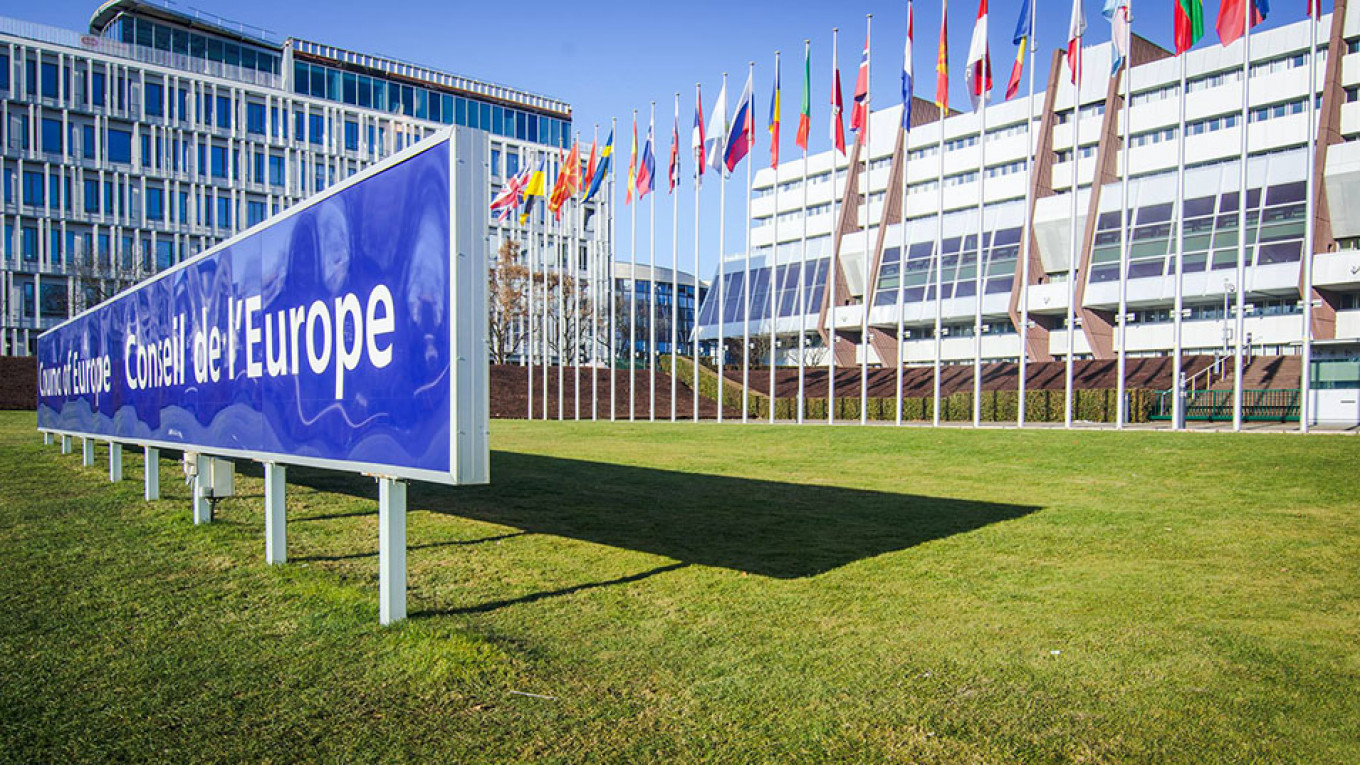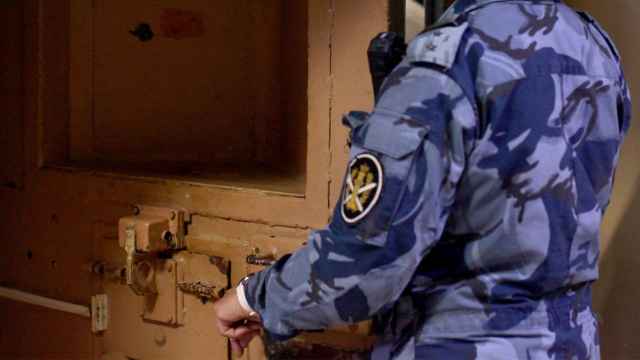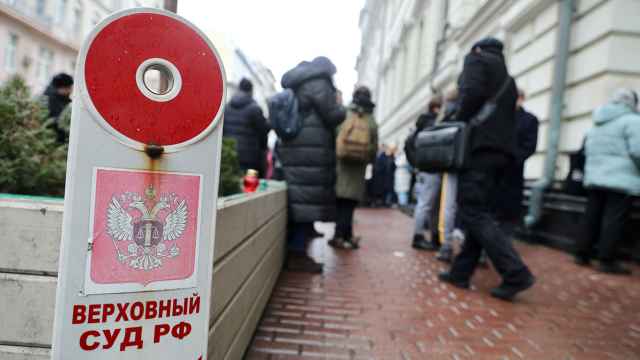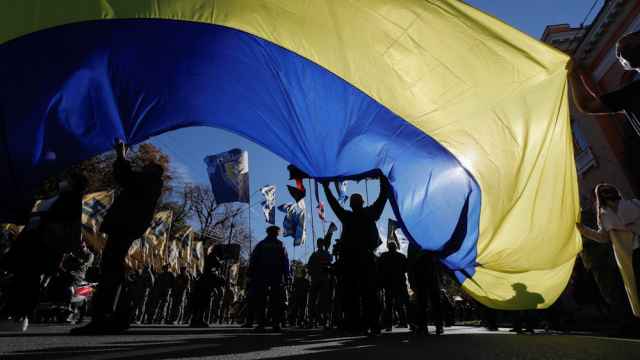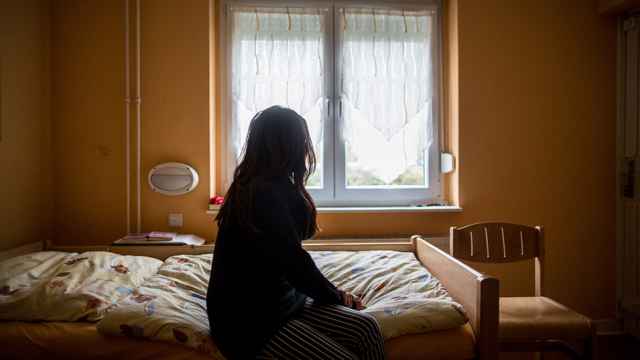Russia warned Europe’s human rights tribunal it risks opening a “Pandora’s Box” of politically motivated cases if it accepts Ukraine’s claims that Moscow-led forces committed atrocities in the Crimea.
The legal gambit by Russia’s Deputy Justice Minister Mikhail Galperin came as both sides faced off at the first public hearing at the European Court of Human Rights in the bitter dispute triggered by Russia’s take over of the Black Sea peninsula. Galperin’s move was quickly dismissed by the Ukrainian side, which pointed to independent evidence from the United Nations to corroborate its allegations.
“Ukraine’s written submissions are defective in many ways because they’re political” and are based “more on propaganda than direct evidence,” Galperin told a packed courtroom in Strasbourg, France.
Galperin then told the judges that if they accept the Ukraine case, a subsequent flood of other politically motivated cases “would obstruct the proper role of the court.”
Russia was suspended from the assembly of the Council of Europe, which oversees the human rights court, for its aggression and was only readmitted in June. Ukraine, which has brought four other applications against Russia before the court, also claims Russian militia harassed and intimidated priests and journalists, which Russia also denies.
Ben Emmerson, counsel for Ukraine, said the reason there are not more witnesses and witness testimony is that Russia had deliberately blocked access to investigators in Crimea. Nevertheless, he said independently corroborated reporting by the United Nations Officer of the High Commissioner for Human Rights shows human rights violations, including torture of Ukrainian officers using electricity and knives.
“The UN assesses there has been a dramatic worsening of human rights violations since Russia’s occupation of Crimea,” he said. “This is serious and credible evidence that requires serious investigation and more than meet the admissibility threshold.”
Michael Swainston, a lawyer for Russia in the case, added that Ukraine’s allegations are “overwhelmingly political that fail to meet the admissibility criteria” and should not be accepted for judgment.
“Where are the witness statements?” Swainston asked the court. “If Ukraine had a genuine case, there would be lots of statements from victims.”
Russia’s readmission to the Council of Europe assembly was supported by Germany and France, and at the G-7 Summit in Biarritz, France last month, French President Emmanuel Macron said isolating Russia from Europe would be a “profound” error. That may be playing into Russian President Vladimir Putin’s strategy, said Orysia Lutsevych, a research fellow at Chatham House in charge of its Ukraine program.
‘We’re changing’
“Putin is trying to create an impression that ‘we’re changing and being cooperative’ so Russia will engage with the hearings but it doesn’t mean they will comply with the decision,” she said.
Russia has shown little respect for other international courts where it’s been sued over its annexation of Crimea. The world’s largest country argued in 2017 that the United Nations’ International Court of Justice had no authority to rule on allegations it was supplying weapons to separatists in Ukraine and repressing the rights of people in Crimea.
Then in May, Russia refused to participate in proceedings at the International Tribunal for the Law of the Sea, which ruled 19-1 to order Russia to hand over three Ukrainian ships and two dozen sailors seized in the Kerch Strait, separating Crimea from mainland Russia.
The Ukrainians were eventually let go last weekend but “they were released because of the prisoner swap not the tribunal for the law of the sea,” said Lutsevych. “Russia will engage but any resolution coming out of it they will ignore.”
A Message from The Moscow Times:
Dear readers,
We are facing unprecedented challenges. Russia's Prosecutor General's Office has designated The Moscow Times as an "undesirable" organization, criminalizing our work and putting our staff at risk of prosecution. This follows our earlier unjust labeling as a "foreign agent."
These actions are direct attempts to silence independent journalism in Russia. The authorities claim our work "discredits the decisions of the Russian leadership." We see things differently: we strive to provide accurate, unbiased reporting on Russia.
We, the journalists of The Moscow Times, refuse to be silenced. But to continue our work, we need your help.
Your support, no matter how small, makes a world of difference. If you can, please support us monthly starting from just $2. It's quick to set up, and every contribution makes a significant impact.
By supporting The Moscow Times, you're defending open, independent journalism in the face of repression. Thank you for standing with us.
Remind me later.


